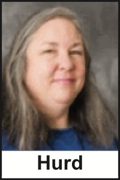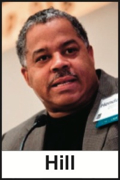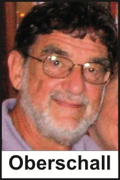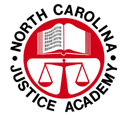Rascals case in brief
In the beginning, in 1989, more than 90 children at the Little Rascals Day Care Center in Edenton, North Carolina, accused a total of 20 adults with 429 instances of sexual abuse over a three-year period. It may have all begun with one parent’s complaint about punishment given her child.
Among the alleged perpetrators: the sheriff and mayor. But prosecutors would charge only Robin Byrum, Darlene Harris, Elizabeth “Betsy” Kelly, Robert “Bob” Kelly, Willard Scott Privott, Shelley Stone and Dawn Wilson – the Edenton 7.
Along with sodomy and beatings, allegations included a baby killed with a handgun, a child being hung upside down from a tree and being set on fire and countless other fantastic incidents involving spaceships, hot air balloons, pirate ships and trained sharks.
By the time prosecutors dropped the last charges in 1997, Little Rascals had become North Carolina’s longest and most costly criminal trial. Prosecutors kept defendants jailed in hopes at least one would turn against their supposed co-conspirators. Remarkably, none did. Another shameful record: Five defendants had to wait longer to face their accusers in court than anyone else in North Carolina history.
Between 1991 and 1997, Ofra Bikel produced three extraordinary episodes on the Little Rascals case for the PBS series “Frontline.” Although “Innocence Lost” did not deter prosecutors, it exposed their tactics and fostered nationwide skepticism and dismay.
With each passing year, the absurdity of the Little Rascals charges has become more obvious. But no admission of error has ever come from prosecutors, police, interviewers or parents. This site is devoted to the issues raised by this case.
On Facebook
Click for earlier Facebook posts archived on this site
Click to go to
Today’s random selection from the Little Rascals Day Care archives….
Click for earlier Facebook posts archived on this site
Click to go to
Today’s random selection from the Little Rascals Day Care archives….
UNCG professor showed no tolerance for skepticism
 Feb. 13, 2012
Feb. 13, 2012
“It is evident that, although mistakes were made in the handling of the (Little Rascals) case, these children definitely were sexually abused by one or more individuals at the day care center. To suggest otherwise is to revictimize these smallest victims.
“As a professor of social work at UNCG whose specialty is child abuse, I would like the public to be aware that research has shown that 97-99 out of 100 children who report that they have been sexually abused are telling the truth. When a child tells you that an unauthorized adult is ‘playing doctor’ with him/her, it is highly likely that he/she is describing some sort of abuse.
“If you do not believe the child, you become part of the victimization of that child. If you believe that detection and prosecution of child abuse cases are witch hunts, then you protect child molesters and allow them to continue to traumatize children. I cannot imagine that the responsible people of this state want to put themselves on the side of criminals who abuse children.”
Elisabeth Porter Hurd, Greensboro
– From a letter to the editor of the Greensboro News & Record, June 9, 1997
Does Dr. Hurd still believe that the Little Rascals children “definitely were sexually abused”? And that to doubt the prosecution’s case was to “protect child molesters and allow them to continue to traumatize children”?
Last week I asked Dr. Hurd whether she might have changed her mind – so far no response.
When ‘overwhelming community sentiment’ wins
 June 10, 2013
June 10, 2013
“The danger posed by courts and prosecutors who abdicate their responsibilities to uphold the Constitution in favor of overwhelming community sentiment was recently illustrated in State v. Robert Fulton Kelly Jr.
“The trial prosecutor and the Superior Court judge were so overwhelmed by community sentiment that the trial was converted from a proceeding to adjudicate Mr. Kelly’s guilt or innocence into a forum to assist the families of the scores of alleged child victims recover from the gut-wrenching allegations of the 100-count indictment. The result: Justice was poorly served.
“The individuals thought to be victims and their many family members, loved ones and neighbors were frustrated, angered and in the end felt cheated. The individuals accused of heinous abuse of scores of children were deprived of a fair trial and deprived of liberty for more than three years.”
– From a talk by Henderson Hill, director of the N.C. Resource Center, Office of the Appellate Defender, at the Senator Sam J. Ervin Jr. Constitutional Issues Program, (May 18, 1995)
UNC sociologist sought to deflate moral panic
 March 6, 2013
March 6, 2013
Anthony “Tony” Oberschall, professor (now emeritus) of sociology at UNC Chapel Hill, wrote extensively – if not prominently – about the insanity of the Little Rascals case. How was Oberschall able to resist the storyline that seduced so many others?
“Before retiring from UNC in 2005,” he recalls, “I taught in universities for 40 years. One of my fields of writing and research concerned collective behavior – collective myths, false beliefs, rumors, how they originate and why they are believed.
“As the Little Rascals prosecution unfolded right before my eyes (actually, as reported in the News & Observer), it became obvious to me that this was but one more instance of moral panic, false beliefs and miscarriage of justice….”
Oberschall likens the prosecution narrative to “the widely believed Iraqi WMD story disseminated by the Bush administration in 2002. Unthinking acceptance of what the authorities are asserting, alas, happens all too often.”
In early 1993, Oberschall sent the N&O both an op-ed column and a response to a Dennis Rogers column, but neither appeared nor drew a response from the paper. (They have now been posted on the Bookshelf of Case Materials on this site.)
“At that point,” he says, “having been stonewalled, I decided to research Little Rascals in depth and wrote several times about it in scholarly publications in subsequent years.”
More about Oberschall’s research in Thursday’s post.
Did prosecutors check out AG’s horror movies?
 Aug. 5, 2013
Aug. 5, 2013
The little-publicized North Carolina Justice Academy describes itself as “one of six divisions of the N.C. Department of Justice under the administration of Attorney General Roy Cooper… charged with improving the professionalism and effectiveness of criminal justice personnel throughout the state, through training and support.”
Among the academy’s services: an audiovisual library (downloadable here) designed “to provide criminal justice personnel in North Carolina with training and public information materials (including) over 2,573 videotapes, CDs and DVD programs….”
And quite a varied collection it is, ranging from the practical (“Body Searches: Clothed and Unclothed,” “Dusting for Latents”) to the uplifting (“Climb the Ladder of Success and Take your Family with You!”) to the wholly unexpected (Abbott and Costello’s “Who’s On First?”).
What caught my attention, however, were such titles and descriptions as these:
- “Devil Worship: The Rise of Satanism” (1989) Former satanists, practicing witches, and law enforcement experts explain the vastness and diversity of the movement. Parents are given clues to determine if their children are involved.
- “Treatment of the Ritually Abused Child” (1992) Sophisticated mind control techniques employed by cult members leave their young victims fearful, confused, and deeply traumatized. The special treatment needs of these children are examined in detail through both session segments and on-camera discussions with the therapists.
- “Satanic Cults and Ritual Crime” (1990) Reveals the symbols used by members of the occult world, highlights criminal activities associated with ritual practices and ceremonies and gives important dates when these crimes are most likely to occur during the year.
Is it possible these documentaries informed the beliefs of the Little Rascals prosecutors? Could Assistant Attorney General Bill Hart have checked them out and hosted a ritual-abuse film festival for Nancy Lamb and H.P. Williams? Sounds crazy, sure – but not a bit crazier than the claims ginned up by the therapists and prosecutors.
Footnote: I had hoped to borrow these films myself – I was especially eager to watch those “on-camera discussions with the therapists” – but a library technician at the Justice Academy told me she was “only allowed to send materials to folks in law enforcement.”











0 CommentsComment on Facebook